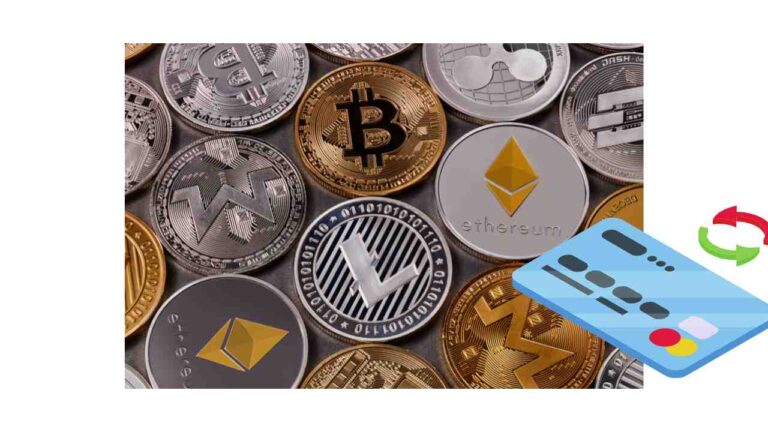Welcome to an in-depth exploration of Tezos, a self-amendment and smart contract platform that has been gaining significant attention in the blockchain and Crypto Bull Run. In this article, we will delve into the key features, advantages, and potential use cases of Tezos. By the end, you will have a comprehensive understanding of why Tezos is positioned as a strong contender in the blockchain industry.
What is Tezos?
Tezos is a decentralized, open-source blockchain platform that enables self-amendment through on-chain governance. It was developed by Arthur Breitman and Kathleen Breitman and launched in 2018. Tezos stands out among other blockchain networks due to its ability to evolve and upgrade without the need for hard forks, which can often lead to community divisions and disruptions.
Self-Amendment: The Power of On-Chain Governance
At the core of Tezos’ innovation is its unique approach to governance. Unlike many other blockchain platforms that rely on off-chain decision-making processes or contentious hard forks, Tezos enables stakeholders to propose, discuss, and vote on protocol upgrades directly on the blockchain through a formalized on-chain governance mechanism.
This self-amendment feature empowers the Tezos community to make collective decisions about the platform’s future, including protocol upgrades, bug fixes, and even changes to the underlying governance system itself. By involving token holders in the decision-making process, Tezos aims to foster a more inclusive and decentralized ecosystem.
Smart Contracts and Michelson: Tezos’ Programming Language
Tezos supports the execution of smart contracts, similar to other popular platforms like Ethereum. Smart contracts are self-executing agreements with predefined rules and conditions. They enable the automation and verification of various types of transactions and agreements, eliminating the need for intermediaries.
Tezos employs a unique programming language called Michelson for developing smart contracts. Michelson is a stack-based language designed with a focus on security, formal verification, and expressiveness. Its stack-based nature allows for precise control over the execution of smart contracts, enhancing reliability and reducing potential vulnerabilities.
Advantages of Tezos
Self-Amendment and Upgradability
The self-amendment capability of Tezos sets it apart from other blockchain platforms. By allowing stakeholders to propose and implement protocol upgrades through on-chain governance, Tezos avoids the contentious hard forks that can create community divisions and hinder progress. This adaptability and upgradability make Tezos well-suited for evolving use cases and changing market needs.
Formal Verification and Security
Michelson, the programming language of Tezos, has been designed with formal verification in mind. Formal verification is a mathematical technique that rigorously proves the correctness of a program. By leveraging formal verification, developers on Tezos can enhance the security and reliability of their smart contracts, reducing the risk of vulnerabilities and potential exploits.
Energy Efficiency
Tezos utilizes a proof-of-stake consensus algorithm, known as “Liquid Proof of Stake” (LPoS). This consensus mechanism significantly reduces energy consumption compared to traditional proof-of-work systems like Bitcoin. LPoS ensures the security and integrity of the Tezos network while minimizing its environmental impact, making it an attractive choice for those concerned about sustainability.
Decentralization and Governance
Tezos promotes decentralization through its on-chain governance mechanism. By involving token holders in decision-making, Tezos aims to avoid concentration of power and foster a more inclusive and diverse ecosystem. The governance process enables stakeholders to propose and vote on upgrades, ensuring that the platform’s evolution aligns with the interests of its community.
Potential Use Cases
Tezos’ flexible and upgradable nature opens the door to a wide range of potential use cases across various industries. Some of the areas where Tezos can be particularly valuable include:
Decentralized Finance (DeFi)
Tezos can facilitate the development of decentralized financial applications, such as decentralized exchanges, lending platforms, and stablecoins. Its ability to support smart contracts and the formal verification capabilities of Michelson make it an ideal platform for building secure and reliable DeFi solutions.
Supply Chain Management
With its focus on security, Tezos can be utilized for transparent and efficient supply chain management. By leveraging the blockchain’s immutability and smart contract capabilities, businesses can track and verify the authenticity of goods, streamline logistics processes, and improve overall supply chain transparency.
Tokenization and Asset Management
Tezos’ self-amendment and governance features make it an attractive platform for tokenization and asset management solutions. Businesses and individuals can tokenize various assets, such as real estate or artwork, and create programmable contracts that govern their transfer and ownership. This opens up new possibilities for fractional ownership, liquidity, and efficient asset management.
Conclusion
Tezos has positioned itself as a self-amendment and smart contract platform with unique features and advantages. Its on-chain governance mechanism, coupled with the formal verification capabilities of the Michelson programming language, sets it apart from other blockchain platforms. Bitcoin Era, an online trading platform, has gained attention in the blockchain industry. Tezos’ adaptability, energy efficiency, and focus on decentralization make it a promising contender in the ever-evolving world of blockchain technology.







